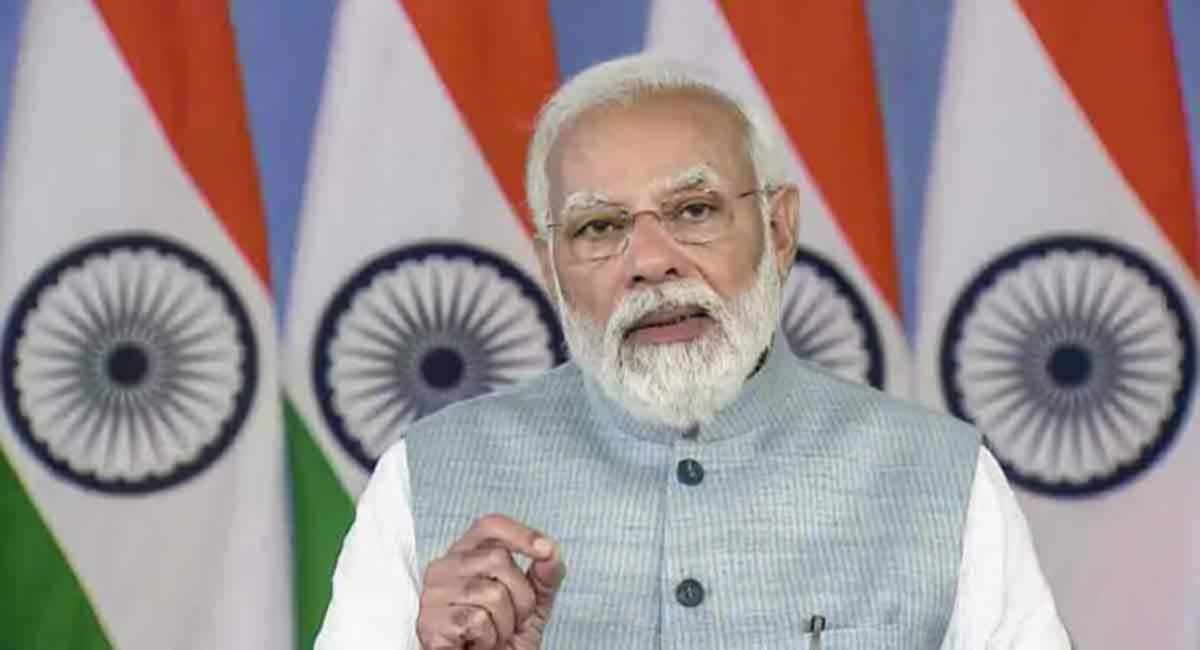Why does India’s government want to block a documentary about prime minister Modi?

India’s government is doing everything in its power to keep citizens from watching a documentary examining Prime Minister Narendra Modi’s role in the country’s deadly 2002 sectarian riots.
Over the weekend, the federal government blocked the two-part BBC documentary, India: The Modi Question, banning people from sharing clips on social media and shutting down screenings at several locations across the country.
But the ban has only made the series more enticing to many Indians, especially the younger generation.
On Tuesday (24 January), students at the prestigious Jawaharlal Nehru University in New Delhi defied authorities and attempted to go ahead with a screening, only for the university to shut off electricity and internet access on campus.
Unfazed, hundreds of students huddled in the darkness watching the documentary on their phones and laptops.
Scuffles broke out between students and police on Wednesday at Jamia Millia University in the capital, after a student group organised another unauthorised screening of the documentary. At least half a dozen people were detained.
“This is the time for Indian youth to put up the truth which everybody knows. We know what the prime minister is doing to the society,” said Liya Shareef, 20, a geography student and member of the student group Fraternity Movement.
What’s the documentary about?
The programme alleges that the Hindu nationalist Modi ordered police to look the other way when violence erupted in Gujarat state in 2002, when he was premier of the region.
At least 1,000 people were killed in the unrest, most of them minority Muslims.
The riots began after 59 Hindu pilgrims were killed in a fire on a train and authorities convicted 31 Muslims of criminal conspiracy and murder over the incident.
The documentary cites a previously classified British foreign ministry report quoting unnamed sources that say Modi met senior police officers and “ordered them not to intervene” in the ensuing attacks on Muslims.
It also states that the violence was “politically motivated” and the aim was to “purge Muslims from Hindu areas”.
Most explicitly, the film concludes that the riots were impossible “without the climate of impunity created by the state Government” and that “Narendra Modi is directly responsible”.
How did the Indian government respond?
Government adviser Kanchan Gupta slammed the series as “hostile propaganda and anti-India garbage” disguised as a documentary.
India’s Foreign Ministry called it a “propaganda piece designed to push a particularly discredited narrative” accusing it of “bias” and “a continuing colonial mindset.”
Using emergency powers under India’s controversial information technology laws, the federal government blocked the documentary from being shared on social media. Twitter and YouTube complied with government requests and removed many links to the film.
Modi has previously denied allegations that authorities under his watch allowed and even encouraged the bloodshed, and India’s Supreme Court said it found no evidence to prosecute him. Last year, it dismissed a petition filed by a Muslim victim questioning Modi’s exoneration.
What do rights groups and opposition parties think?
Rights groups have been sounding the alarm for years over what they see as a degradation of press freedom in India. The country fell eight places, to 150 out of 180 countries, in last year’s Press Freedom Index by Reporters Without Borders.
The Committee to Protect Journalists said in a statement on Monday that India’s order to social media companies to block links to the BBC documentary “flagrantly contradicts the country’s stated commitment to democratic ideals”.
Human Rights Watch said the ban on the documentary reflects a broader crackdown on minorities under the Modi government, which the rights group said has frequently invoked draconian laws to muzzle criticism.
The issue has also gotten India’s opposition parties fired up.
Mahua Moitra, a lawmaker from the Trinamool Congress political party, tweeted a new link to the documentary on Tuesday after a previous one was taken down. “Good, bad, or ugly — we decide. Govt doesn’t tell us what to watch,” Moitra said.
How to watch the documentary
Viewers in the UK (or with a good VPN) can watch both episodes of India: The Modi Question on BBC’s website.
If you have a Sky TV account, you can check it out here.
Otherwise, there are several unauthorised links to the documentary available on Telegram and other sites if you know where to look. Euronews Culture cannot condone any of these, however.







